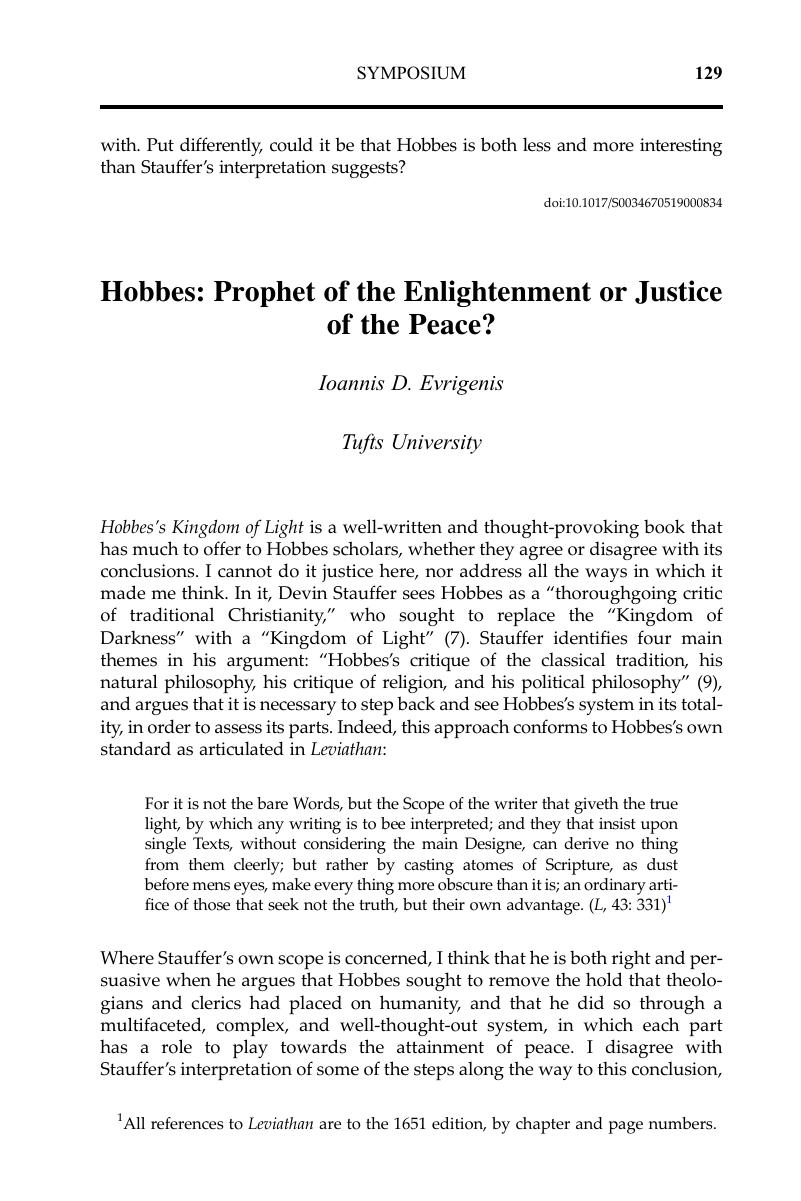No CrossRef data available.
Article contents
Hobbes: Prophet of the Enlightenment or Justice of the Peace? - Devin Stauffer: Hobbes's Kingdom of Light: A Study of the Foundations of Modern Political Philosophy. (Chicago: University of Chicago Press, 2018. Pp. 336.)
Review products
Published online by Cambridge University Press: 20 December 2019
Abstract

- Type
- A Symposium on Devin Stauffer's Hobbes's Kingdom of Light: A Study of the Foundations of Modern Political Philosophy
- Information
- Copyright
- Copyright © University of Notre Dame 2019
References
1 All references to Leviathan are to the 1651 edition, by chapter and page numbers.
2 Evrigenis, Ioannis D., Images of Anarchy: The Rhetoric and Science in Hobbes's State of Nature (Cambridge: Cambridge University Press, 2014)CrossRefGoogle Scholar.
3 Stauffer's interpretation of a commonwealth “of any religion at all” (268) takes Hobbes's words out of context. In that passage (L, 31: 192), Hobbes is only arguing that a commonwealth of several religions is like a commonwealth with no religion at all. He is not envisioning a commonwealth without religion.




